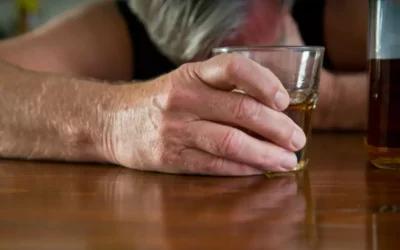Content
Into Action is an addiction treatment center specializing in personalized treatment for drug and alcohol abuse, conveniently located in Houston, Texas and led by experienced master’s level counselors and medical professionals. You and I may have equally how does alcohol affect dopamine high levels of dopamine, but our symptoms — and experiences — will be completely different. Some individuals are more sensitive to dopamine than others, which partially explains why some of us are more susceptible to alcohol or drug use disorders.
Indeed, a major role for nAChRs on dopamine terminals in regulating dopamine release has been demonstrated in rodents [53,54,55,56,57]. This disynaptic mechanism involves acetylcholine released from cholinergic interneurons activating nAChRs on dopamine axons to induce dopamine release. Thus, any changes to cholinergic signaling in striatum might also influence changes in dopamine release. Indeed, a recent study examining optogenetically evoked dopamine release in mice found no change in dopamine release in the NAc core and medial shell following chronic alcohol treatment, suggesting that the chronic alcohol effect may be due to mechanisms upstream of the dopamine terminal [58]. However, we found no significant differences in the cholinergic contribution to dopamine release between multiple abstinence and control males in Cohort 3 but we did find a trend toward reduced cholinergic driven dopamine release in the putamen of alcohol-consuming subjects. Similarly, in a limited set of putamen slices from the female cohort, we observed a potential reduction in cholinergic driven dopamine release in alcohol monkeys relative to controls (Fig. S1).
Basics of Brain Function and Neurotransmitters
This presynaptic influence is part of the tonic-nonsynaptic mode of dopaminergic signal transmission. They will simply help you change your brain’s reward system, which correlates drinking or drug use with pleasure. For some patients, the drugs have a calming effect, Kolodner explains, but what’s really happening is that the drugs themselves are normalizing the brain’s dopamine levels.

Although the participants didn’t know the order in which they would receive the drinks, if they received the placebo drink first they were cued into expecting the alcohol drink next. In a healthy functioning brain, only a certain amount of dopamine is released, and they rarely fill all of the dopamine receptors that are available. If too much dopamine is released, the brain effectively shuts off dopamine receptors as a way to control the flow of the chemical.
2. Interaction between alcohol and the mesocorticolimbic dopamine system
Throughout the striatum, dopamine release is generally decreased following chronic alcohol use or treatment. In contrast to the dorsal striatum, dopamine release in the NAc is increased following chronic alcohol use in male cynomolgous macaques [22, 24]. The current study indicates that long-term alcohol consumption decreased dopamine release in the putamen of male rhesus macaques (regardless of abstinence status) and in the caudate of the multiple abstinence monkeys.

Alcohol abuse can increase your risk for some cancers as well as severe, and potentially permanent, brain damage. It can lead to Wernicke-Korsakoff syndrome (WKS), which is marked by amnesia, extreme confusion and eyesight issues. Taking certain vitamins and magnesium, along with not drinking alcohol, may improve your symptoms. The “brake” system in the brain is responsible for ensuring that every day, normally pleasurable experiences do not turn into addictive behaviors. Without this specific neurotransmitter, dopamine levels remain elevated as long as alcohol continues to enter the person’s body.
What Is Dopamine?
In addition the researchers noted that that dopamine activity was higher among those with a history of alcoholism in their family. These include your age, gender, overall health, how much you drink, how long you have been drinking and how often you normally drink. “Intoxication occurs when alcohol intake exceeds your body’s ability to metabolize alcohol and break it down,” states Jeffrey T. Johnson, DO, Northwestern Medicine Regional Medical Group board-certified specialist in addiction medicine. In addition to the health consequences, alcoholism contributes to fractured families and drunk driving that kills more than 10,000 people every year. The CDC estimates that excessive drinking costs the United States more than $249 billion (yes with “b”) each year when measured for loss in work and job productivity, health care expenses, law enforcement, and vehicle crashes.
Renewal Lodge by Burning Tree is a residential treatment center in Texas that offers a holistic approach to treating alcohol use disorder. Our program includes evidence-based therapies, 12-step philosophy, and physical fitness activities that address addiction’s physical, emotional, and spiritual aspects. With a focus on individualized treatment and support, Renewal Lodge can provide a path toward long-term recovery for individuals struggling with alcohol use disorder. When you first start drinking alcohol, the chemicals increase dopamine production. However, this harmonious relationship between dopamine and alcohol doesn’t last long. Unlike other drugs, which prevent the reuptake of dopamine, alcohol doesn’t do that.